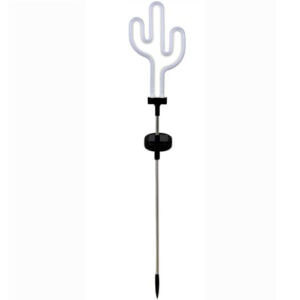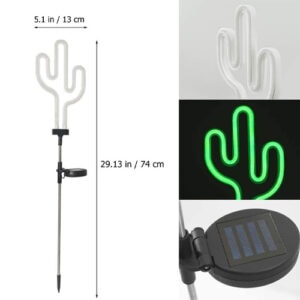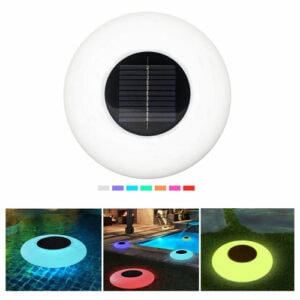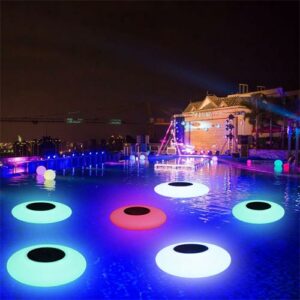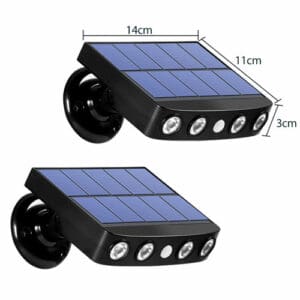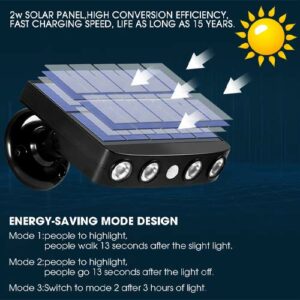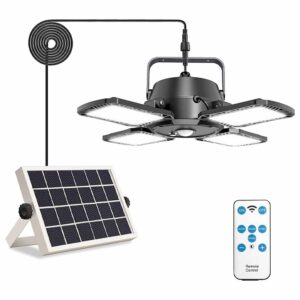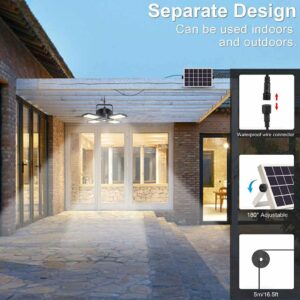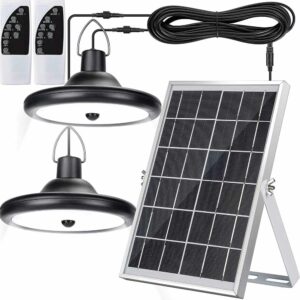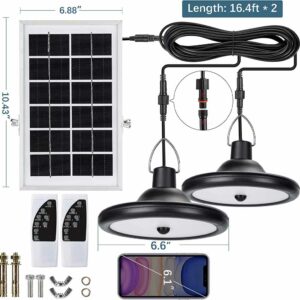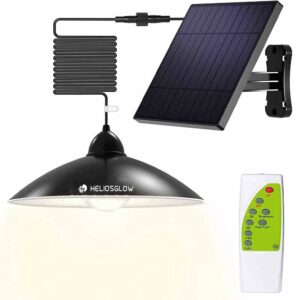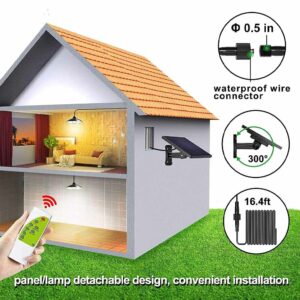Solar Shed Lights
Showing all 3 results
Showing all 3 results
Solar shed lights are an aesthetic yet simple way to add lighting to your residential or commercial shade. For most systems, indoor solar lights for shed set ups are as straightforward as drilling a spot for the legit and securing the panel before letting it charge up. Once charged, the panel can offer ample charge to light a bulb.
There is a bone of contention that solar-powered lights might not be ideal since the small panels are not powerful enough to charge on cloudy days. They require clear direct and constant sunlight to work to their fullest capacity. So, if you need power for long periods in your shed, it might not be enough to just rely on solar shed light kits. In such cases, installing solar panels for shed light on your shed roof might be feasible.
What Are the Types Of Solar Lights For Sheds?
There are primarily 2 kinds of solar shed lights:
- Indoor lights:
An indoor solar shed light is meant to be mounted inside the shed and its solar panel outside. The solar powered indoor shed lights can be turned on and off with a pull cord, switch, and/or remote. They can be turned on during both day and night.
- Outdoor lights:
An outdoor solar shed light has a motion sensor and solar panel built into the top of its housing, so it comes in one piece. The Outdoor Solar powered lights for sheds tend to have diverse light modes, including ones that turn on the light or make it brighter when motion is sensed. These lights only turn on at night.
How Does a Solar Shed Light Work?
Solar shed lights that you can buy online operate using photon rays that are being beamed to the Earth from the Sun. Known as photon rays, they strike something called a photovoltaic cell that promptly absorbs them and converts their energy. These special PV cells are built into the conductor housing to enable solar shed light sources. Once the rays are absorbed, inbuilt inverters split atoms from electrons. The resulting energy is then harnessed as usable electricity.
Advantages Of Buying Solar Shed Lights
- Energy and cost-savings over time
- Easier to install as compared to mains powered lighting
- Zero emissions
- Less expensive as compared to mains powered lighting
- Minimal maintenance
- More versatile as compared to mains powered lighting
- Remote controls can make it more convenient than mains lighting
Disadvantages Of Solar Shed Lights
- Not very durable and hard-wearing
- Not bright like mains lighting
- Might be unreliable during lesser periods of daylight hours
- Build quality often not as high as fixed lighting solutions
Factors To Consider While Buying Solar Shed Light
1. Size of the shed
The size of the shed will determine how many lights are needed and the power of the solar panel required to charge them. If your shed is large, you may need more lights or a larger solar panel to provide enough power to illuminate the entire space. Heliosglow spotlights, for one, are rated on the brighter spectrum of the solar lights and hence you’ll most likely need lesser of them in quantity as compared to others in the market.
2. Location of the shed
The location of the shed will determine how much sunlight it receives, which will affect the performance of the solar panel. If the shed is located in an area that receives a lot of direct sunlight, the solar panel will be able to charge the lights more efficiently. But if the shed is located in an area that is shaded, it may be more challenging to keep the lights charged.
3. Type of solar panel
There are several types of solar panels used in solar lights, including monocrystalline, polycrystalline, and thin-film. Monocrystalline panels are made from a single crystal of silicon and have the highest efficiency rate. Polycrystalline panels are made from multiple crystals of silicon and have a slightly lower efficiency rate. Thin-film panels are made from a thin layer of photovoltaic material, such as amorphous silicon, and have the lowest efficiency rate. Ultimately, the type of solar panel used in solar lights for storage shed or solar lights for garden shed will depend on factors such as the intended application, budget, and the amount of available space.
4. Battery capacity
The battery capacity will determine how long the lights will run after the sun goes down. Look for lights with a high battery capacity, as they will be able to run for a longer period of time before needing to be recharged.
5. Style and design
The style and design of the solar powered lights for shed will affect the overall aesthetic of the shed and how well they blend in. Choose lights that complement the design of your shed and have a style that you find appealing.
6. Cost
Compare prices and features of different solar powered lights for shed to find the best value for your budget. Look for lights that provide a good balance of performance and cost. Heliosglow lights offer a good package for their cost.
7. Durability
Choose solar powered indoor shed lights, solar lights for garden shed that are made with durable materials that can withstand the elements and last a long time. Look for solar lights that are weather-resistant and have a good warranty.
8. Other features
Look for solar lights that have additional features like motion sensing, dimming, and remote control. These features can add convenience and flexibility to your lighting system.
